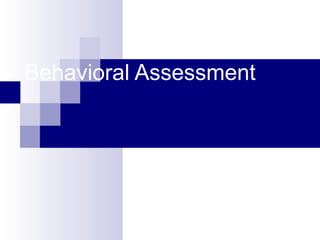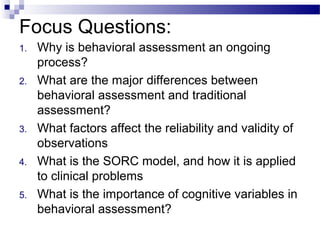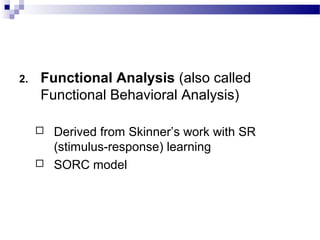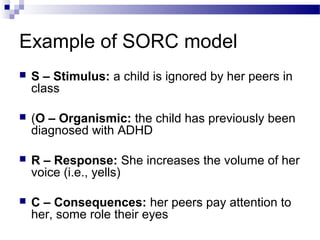Behavioral assessment is an ongoing process that focuses on objective recording of behavior in context to understand and change it. It differs from traditional assessment by interpreting test responses as samples rather than signs of internal processes, and using a functional analysis approach like the SORC model to conceptualize behaviors based on antecedents, organismic factors, the behavior itself, and consequences. Behavioral assessment occurs throughout therapy, from initial assessment to evaluating improvement, as an integral part of the therapeutic process.










